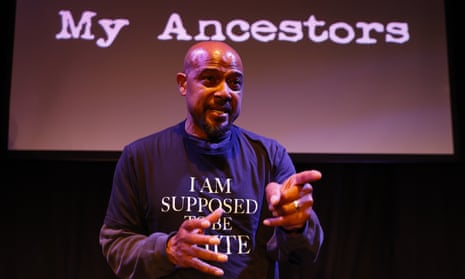In the hands of a lesser playwright, you can imagine this memoir by the late August Wilson to be fodder for the chatshow circuit. Here is the anecdote about his first teenage crush. Now, the one about his string of dead-end jobs. Next comes his friendship with a junkie poet, his three days behind bars and his life-or-death encounter with a jealous husband.
But How I Learned What I Learned, making its European debut 17 years after Wilson’s death, is an altogether weightier piece of work. On the surface, it is a breezy compendium of reminiscences, a ragtag collection of stories from the 1960s and 70s, long before the debut production of Jitney in 1982, followed by Ma Rainey’s Black Bottom and Fences, put him on the theatrical map. Back then, as these anecdotes attest, he was variously a high school dropout, an autodidact, a grass cutter, a dish washer and a poet.
But although the tone might be easygoing and nostalgic, the play has a steely sense of purpose. It is to demonstrate the pervasiveness of racist thinking, a thinking so insidious it even found its way into dictionary definitions of black and white. “I don’t see colour,” a well-meaning white man tells Wilson, who naturally asks why he made this observation to the only black man in the room.
The stories from Pittsburgh’s Hill District have a similarly everyday quality. There is the toy shop owner who suspects him of stealing before he has even begun work; the woman who refuses to let him mow her lawn (and the boss who acquiesces); and the bank teller who claims she cannot give him an envelope for his money. “It’s not a little thing,” he says, as the evidence mounts of a society polluted by an inhumane ideology. “It’s about respect.”
If it seems an odd idea for an actor to perform someone else’s memoir, Lester Purry never makes it seem so. It was watching Ma Rainey’s Black Bottom at Minnesota’s Penumbra, the theatre that championed Wilson’s work, that made Purry want to join the company. He brings to his rich and resonant performance an easy authority that makes the storytelling as compelling as it is polemical.
August Wilson’s How I Learned What I Learned is at Assembly Rooms, Edinburgh, until 28 August.

Comments (…)
Sign in or create your Guardian account to join the discussion